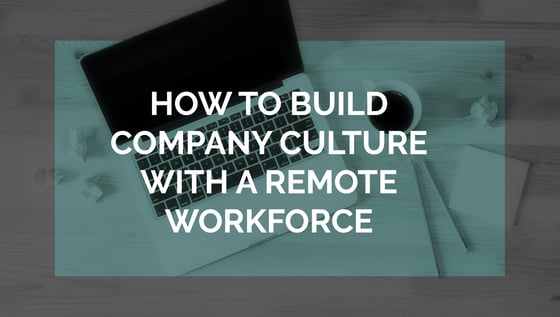
The primary goal of running a company is to achieve sustainable results from employees that work for you. While results are crucial to the survival of employers, they can only be achieved when there is a solid company culture in place. A company’s culture might include extracurricular activities, but this should not be the foundation of creating a well-rounded work environment.
While it is believed that employees who work within four walls, such as an office, are more likely to succeed in contributing to a stronger and more effective work culture, it is possible for remote workforces to have a robust company culture, as well. How building remote workforce culture can be achieved and sustained, is what will be discussed in the paragraphs below.
Craft A Detailed Document And Circulate It Periodically
Remote workforces can be an effective way to conduct operations, provided the teammates are aware of the work culture and are reminded of it on a periodic basis. Instead of merely pointing out the regulations of the company through circulars, creating a detailed document that emphasizes the values, parameters, dos and don’ts can aid in the process of helping teammates abide by the rules. Any expectations from teams in the form of work conduct should also be discussed in this document. New employees who join the remote workforce should be provided a copy of this document, and they should be asked to go through it and raise any questions or concerns they might have.
Promote Open Communication And Feedback
Communication between the various remote teammates and management staff can ensure two important things:
1) Everyone will be informed of the work assigned, work completed and overall work schedule so that time is not wasted on reiterating the things that still need to be done or haven’t been completed.
2) Open communication helps air out any issues and prevents teammates from leaving due to any misunderstandings.
Not only should feedback be accepted, it should also be encouraged. Teammates who work as a part of the remote workforce should be encouraged to voice their opinion periodically so that management can take any suggestions into account and improve the work culture. If a hierarchy must be followed while communicating, then this should be mentioned beforehand.
Prioritize Rewards and Recognition
Since your remote employees cannot be present in the office, bring some of the office culture to your remote employees. A great way to do this is by sending virtual gifts - Evabot is an AI gift bot that allows the recipient to choose which gifts they prefer, all within different, preset price ranges. Some companies provide new remote employees with “perk packages” that include snacks, t-shirts, stickers, and other kinds of SWAG that headquarter employees would naturally receive, so that the employee feels included as part of the team. Recognition is always important, regardless if it is face-to-face or not. Public praise on forums such as Slack, or whatever other corporate chat platform your company uses is crucial to building comradery amongst your employees. More on chat platforms next!
Introduce New Teammates Through The Company Chat Platform
Companies that operate through remote workforces should consider not only starting a chat platform to discuss work-related issues, but also to introduce new teammates to the existing workforce. This will help both new and existing teammates feel included in the operations and will also put expectations in place right from the start. That being said, chat platforms when left unmonitored for extended periods of time, can mimic the “water cooler’ effect which can be detrimental to the growth of the company. Chats should be limited to topics that are pertinent to work, introductions, announcements and anything else that adds value to the remote workforce. Idle chat can lead to many issues, including “mob mentality” when issues crop up, thus it is important to avoid this.
Conduct Surveys About Employee Engagement and Work Satisfaction
Remote workforces are beneficial to both employers and employees in a myriad of ways, provided the employers see results and the employees are happy with the company culture. An effective way to measure employee engagement and work satisfaction levels is to conduct quarterly surveys that ask important questions to the various teams that are engaged with the company. The questions should focus on work-related topics, but also other parameters such as the general happiness and overall mood of the employees when they clock-in and clock-out every day, along with any concerns they might have. This can help employers get a better level of understanding of the bigger picture while ensuring that the remote workforce members do not leave due to being unsatisfied with the company culture.
Building a company culture with a remote workforce can be a daunting task, especially if that’s the way your company was formed. However, it is certainly possible. Leveling expectations and creating lines of open communication are a few of the roadblocks that stand in the way of managing your company culture and becoming a workplace of choice. Use these four tips and you’ll be able to overcome those and lay the foundation for amassing a great company culture inside your remote workforce.


